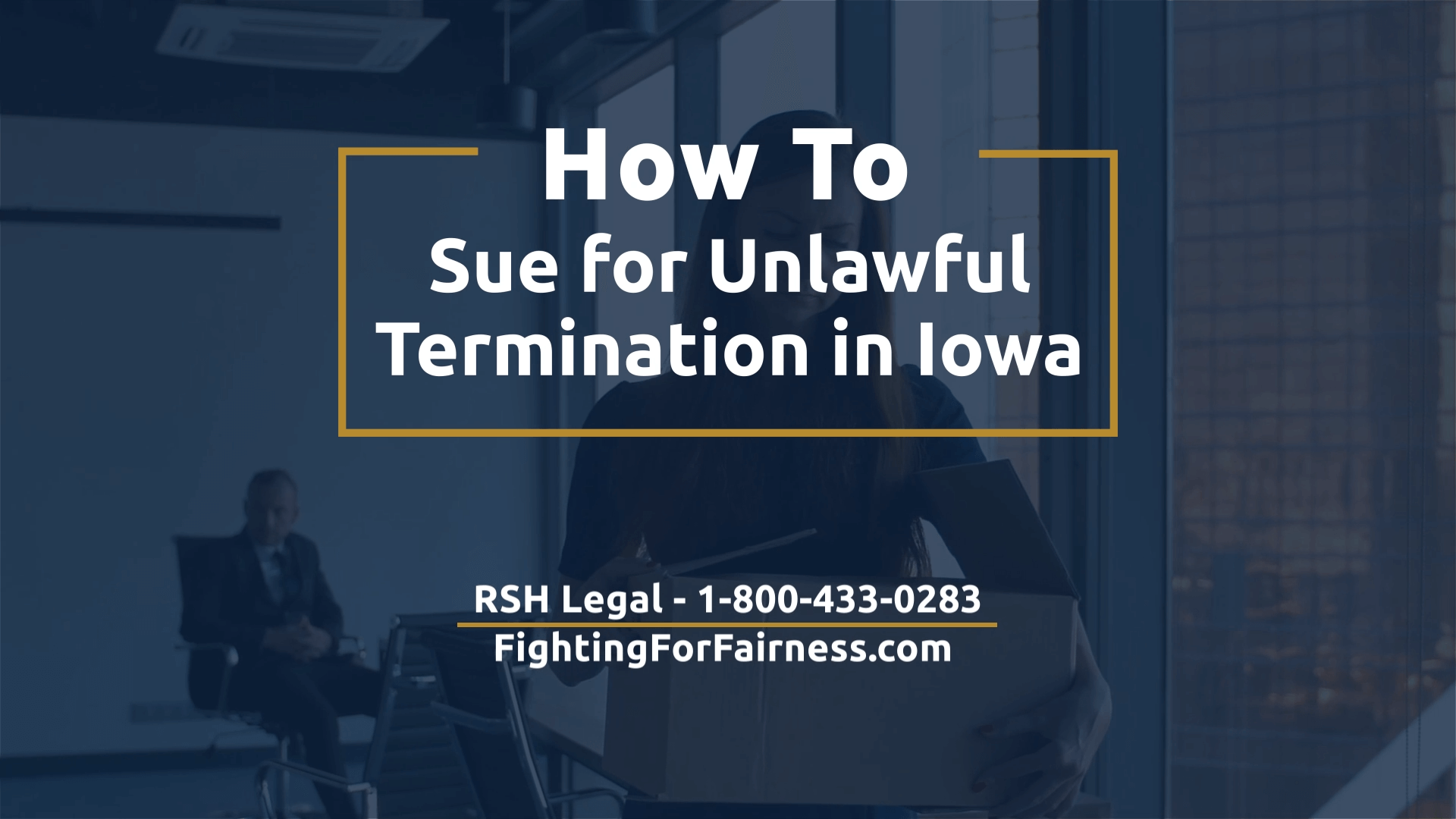If you find yourself in a work environment in Iowa that you feel is quickly deteriorating, you may be going to work every day in fear that you will be fired. You may be wondering if you would have a case against your employer if it does fire you.
There are many factors that affect whether you have a case or not and an attorney would need to analyze your situation in detail. Even before you know whether you have the basis for a claim against your employer, you should know that there are some common mistakes that could hurt your chances of bringing that case in the future.
1. Quitting Your Job to Avoid Being Fired
If you quit your job so you won’t be fired, your ability to bring a case against your employer for any potential wrongdoing just got harder.
Employers that want to fire an employee tend to make that employee’s life pretty miserable leading up to the termination. Performance improvement plans with impossible goals and timetables, last chance warnings, and “needs improvement” evaluations are all tools employers use to try to get the employee to quit on his or her own.
Many people in this situation may decide the job isn’t worth it anymore and resign to take a better job or simply to eliminate a constant source of stress. Sometimes leaving a job that isn’t working is the right decision. But you should know that if you quit your job, it is much more difficult to later hold the employer liable for an illegal termination. If you quit, you may not have legal recourse against your former employer, no matter how bad the employer’s conduct or how terrible the employer made your life.
2. Giving Your Employer a Reason to Fire You
Don’t give your employer a reason to fire you. Sometimes when an employer is putting pressure on an employee, the increased scrutiny causes the employee to perform poorly, which in turn provides the employer with a reason to fire the employee when one did not otherwise exist. Increased scrutiny can also cause an employee to act inappropriately out of anger and frustration to the same effect.
While it can be difficult to stay calm when you are being treated unfairly, it is important to always act professionally. It is equally important to follow, whenever possible, any directions or recommendations contained in a performance improvement plan or negative evaluation, and to continue to give your best efforts even if it appears discharge is inevitable. Throwing in the towel is seldom a good strategy.
3. Not Documenting What’s Going On at Work
You want to make sure to document in writing what is going on at work. All too often, it isn’t until after the employment situation has taken a turn for the worse or until after a termination, that an employee wishes they had saved a particular document or put things in writing.
Smart employers document perceived work deficiencies in performance evaluations, performance improvement plans, written warnings, and other similar documents before they discharge an employee. These documents give them cover if an employee later sues for an illegal termination.
Employees who become the subject of relentless employer documentation often feel overwhelmed and do not know how to properly respond — even if they think the criticism is inaccurate, exaggerated, misleading, or unfair. Often the result is that the documentation becomes very one-sided and in favor of the employer.
If you feel your employer is creating a written record prior to firing you, it is important that you respond in a professional manner. You should respond verbally and in writing, particularly if the documentation is false, one-sided, or otherwise misleading. If you think your employer is discriminating against you, then it’s important that you say that in the written response you prepare, no matter how difficult that may be. Your response should stick to the facts and should be professional. But you need to tell your side of the story to prevent your employer’s flawed or distorted version of events from becoming the most credible version.
It is equally important that you document important meetings and events. For example, if you are called into a meeting with your supervisor and a human resources representative, and your supervisor starts describing perceived issues regarding your work performance, take notes during the meeting or write down everything you remember about the meeting as soon as you can, while it is still fresh in your mind.
You might also consider recording the meeting with your cellphone. Doing so is allowed under Iowa law but may be against a company policy. If your company has a policy against recording meetings or conversations, you should follow that policy so your employer doesn’t have a new reason to accuse you of wrongdoing.
Part of documenting your side of events includes keeping your own copy of important documents and records – like your performance reviews, performance improvement plans, termination notices, or other records reflecting your job status or performance. These types of documents can provide important information to an attorney early in your case and – in some instances – help an attorney to negotiate your case without having to go to court.
Often, if you have not kept these documents, an attorney may not be able to get them until after a lawsuit is already filed. It is best to keep these kinds of documents in a personal storage location like your personal email or printed at home because if you are fired, you will likely lose access to your work computer and email.
4. Not Talking to an Iowa Termination Attorney
Keep in mind it is never too early to talk to an experienced Iowa employment law attorney. Over time, most employees tend to sense when things are going well and when things are going poorly at their jobs. They notice that management no longer seeks their input on certain decisions. They stop being invited to meetings they once attended regularly. Small slights are frequent and begin to accumulate, and they don’t know quite what to make of this change of attitude.
You should get a lawyer involved sooner rather than later if you sense that things aren’t going well at your workplace. Don’t wait until your boss actually tells you there are problems, because many times that discussion never happens. Employees who thought things were going well can be abruptly called into a meeting and told, “I’m sorry, things aren’t working out.”
Even if you talk to an attorney early, your employer might still fire you. But getting advice and counsel can be helpful in creating the best record to later challenge an illegal discharge. Getting advice early can also prevent you from making some of the mistakes we already discussed.
Many attorneys who routinely represent individuals in employment disputes, including RSH Legal, typically do not charge you a fee for these type of “pre-discharge” consultations.
To schedule your free, no-obligation case evaluation with one of our experienced Iowa termination attorneys, call RSH Legal at 1-319-774-1903.




